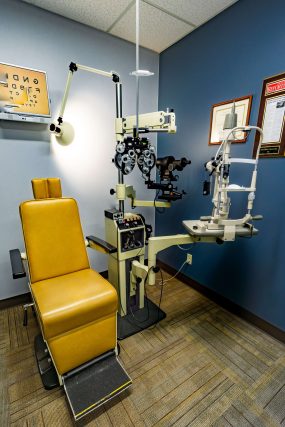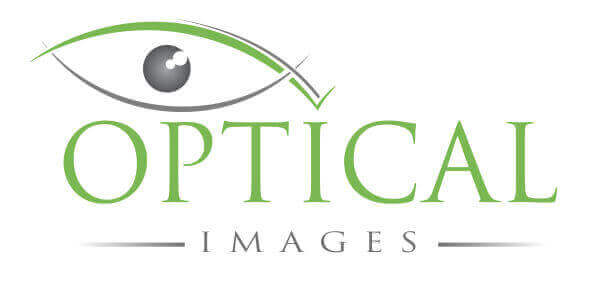
Regardless of your age or physical health, it's important to have regular eye exams.
During a complete eye exam, our Kirkland eye doctor will not only determine your prescription for eyeglasses or contact lenses, but will also check your eyes for common eye diseases, assess how your eyes work together as a team and evaluate your eyes as an indicator of your overall health.
What happens during an eye exam?
Your Kirkland eye exam includes a number of tests and procedures to examine and evaluate the health of your eyes and the quality of your vision. These tests range from simple ones, like having you read an eye chart, to complex tests, such as using a high-powered lens to examine the health of the tissues inside of your eyes.
Dr. Cusic of Optical Images recommends to have a complete eye exam every one to three years, depending on your age, risk factors, and physical condition.
Pediatric Eye Exams in Kirkland, WA
Some experts estimate that approximately 5% to 10% of pre-schoolers and 25% of school-aged children have vision problems. According to the American Optometric Association (AOA), all children should have their eyes examined at 6 months of age, at age 3 and again at the start of school. Children without vision problems or risk factors for eye or vision problems should then continue to have their eyes examined at least every two years throughout school.
Children with existing vision problems or risk factors should have their eyes examined more frequently. Common risk factors for vision problems include:
- premature birth
- developmental delays
- turned or crossed eyes
- family history of eye disease
- history of eye injury
- other physical illness or disease
The AOA recommends that children who wear eyeglasses or contact lenses should have their eyes examined at least every 12 months or according to their eye doctor's instructions. Read more about Pediatric Eye Exams.
Signs of Eye Problems in Adults
 As we age, our bodies and our eyes begin to change. Sometimes it is hard to distinguish between normal aging and signs of problems that require medical attention. When it comes to eyesight, paying attention to a potential problem and seeking medical attention can often mean the difference between successful treatment and vision loss.
As we age, our bodies and our eyes begin to change. Sometimes it is hard to distinguish between normal aging and signs of problems that require medical attention. When it comes to eyesight, paying attention to a potential problem and seeking medical attention can often mean the difference between successful treatment and vision loss.
While you can expect some changes in your eyes in vision as you age, such as reduced ability to focus on close objects (presbyopia), reduced night vision, light sensitivity or decreased depth perception, it is always advisable to consult with your Seattle optometrist to ensure that your symptoms are normal. Further, while these may be signs and symptoms of the normal aging process, they are often treatable, so there is no reason to live with reduced vision or discomfort. Here are some examples of changes in your eyes or vision that may indicate a more serious problem that requires medical attention from your eye doctor:
Vision changes:
- Hazy, blurred or double vision
- Dark spots in central vision
- Trouble adjusting to darkness
- Excessive sensitivity to light or glare – can even be painful
- Seeing spots or floaters
- Sudden difficulty focusing
- Distorted or wavy vision
Eye Changes:
- Red, crusty or swollen eyelids
- Recurrent pain in or around the eyes
- Change in the color of the iris
- Dry, itching or burning eyes
- Excessive tearing
- White spots in the pupil of the eye
Symptoms that require urgent medical treatment or an emergency eye exam – If you experience these symptoms, seek medical assistance immediately:
- Sudden, sharp eye pain
- Loss of peripheral (or side) vision
- Flashes of light or bright floating spots
- Sudden loss of vision or hazy or blurred vision
- Black spots in the field of vision
- Seeing rainbows or halos surrounding lights
- Appearance of a “curtain coming down” over one eye or floating “spider webs”
Even if you experience no signs or symptoms of eye or vision problems, it is important to have regular comprehensive eye exams at your Kirkland optometrist, particularly if you are at risk of eye disease or if you have chronic conditions such as diabetes or high blood pressure. Early detection and treatment could save your eyesight.
Helpful and time saving tips before your eye appointment:
1. Bring your Insurance Card. Some procedures are payable based on medical necessity and some are covered with vision insurance. Our receptionist will request a copy of your cards upon arrival. See a list of insurances we accept.
2. If you have private insurance, it is a good idea to contact your provider prior to your appointment to check the dollar amount or percentage of your coverage, and the time of your last claim. Are you eligible to claim?
3. If you are a new patient and wear contact lenses, bring in the contact lens packaging or boxes with contact lens brand, power and base curve (BC). If you ran out and do not know your power, call your previous office and ask them to fax/email it to us.
4. Bring old or current glasses in with you.
5. If the purchase of computer lenses is a possibility for you, measure the distance between your computer screen and your eyes.
6. Finally, please bring a list of any medications you are taking.
Routine Eye Exams near Redmond & Bellevue, WA
The AOA also recommends an annual eye exam for any adult who wears eyeglasses or contacts. If you don't normally need vision correction, you still need an eye exam every two to three years up to the age of 40, depending on your rate of visual change and overall health. Eye doctors often recommend more frequent examinations for adults with diabetes, high blood pressure and other disorders, because many diseases can have an impact on vision and eye health.
If you are over 40, it's a good idea to have your eyes examined every one to two years to check for common age-related eye problems such as presbyopia, cataracts and macular degeneration. Read more about Vision After 40.
Because the risk of eye disease continues to increase with advancing age, everyone over the age of 60 should be examined annually. Read more about Vision After 60.
